”'M. Valdemar,' I said, 'are you asleep?' He made no answer, but I perceived a tremor about the lips, and was thus induced to repeat the question, again and again. At its third repetition, his whole frame was agitated by a very slight shivering; the eye-lids unclosed themselves so far as to display a white line of the{n} ball; the lips moved sluggishly, and from between them, in a barely audible whisper, issued the words: 'Yes; — asleep now. Do not wake me! — let me die so!'” Il caso Valdemar [The Facts in the Case of M. Valdemar] (Gianni Hoepli + Ubaldo Magnaghi, 1936)
Oct
24

M. Valdemar on his deathbed.
[A] favourite horror movie overall*
– Edgar Allan Poe, The Facts in the Case of M. Valdemar (1845) (via)
A man agrees on being hypnotised while in the state of dying. This particularly haunting and efficiently gory film – the first in the genre – is the result.
* the Bales 2025 Film Challenge for October is horror-themed as opposed to date-based, and is all about favourites. Expect non-horror and films I believe to be relevant instead.
mystery
“No, I never left the wheel; not for a moment.” The Mystery of the Mary Celeste [Phantom Ship] (Denison Clift, 1935)
Oct
23
Bela Lugosi
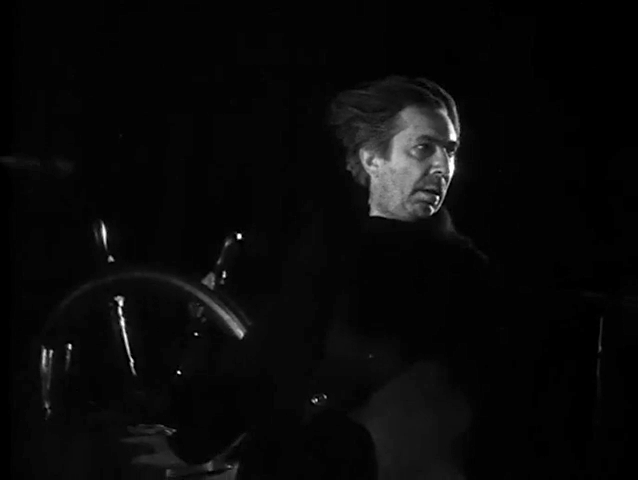
Anton Lorenzen (Lugosi) at Mary Celeste's wheel. DPs: Eric Cross & Geoffrey Faithfull.
[A favourite] Bela Lugosi film*
– Anton Lorenzen
A post-Dracula Lugosi demonstrates that he's more than the cursed aristocrat. An efficient early Hammer production, made just a year after their founding.
* the Bales 2025 Film Challenge for October is horror-themed as opposed to date-based, and is all about favourites. Expect non-horror and films I believe to be relevant instead.
Nattmara [Nightmare] (Arne Mattsson, 1965)
Oct
19
Tue
spoiler warning: click to toggle image

spoiler warning: click to read
Hands hold up a small diary. The camera is focussed on Tuesday the 19th of October, 1965. Handwriting, a chicken scrawl, reads CITROEN A66692 MAJ BERG ✝. Besides that the week is uneventful. DP: Max Wilén.
– You expect me to eat that? – Americans live on ketchup and milk. I'm a whiz at geography.Le passager de la pluie [Rider on the Rain] (René Clément, 1970)
Oct
10
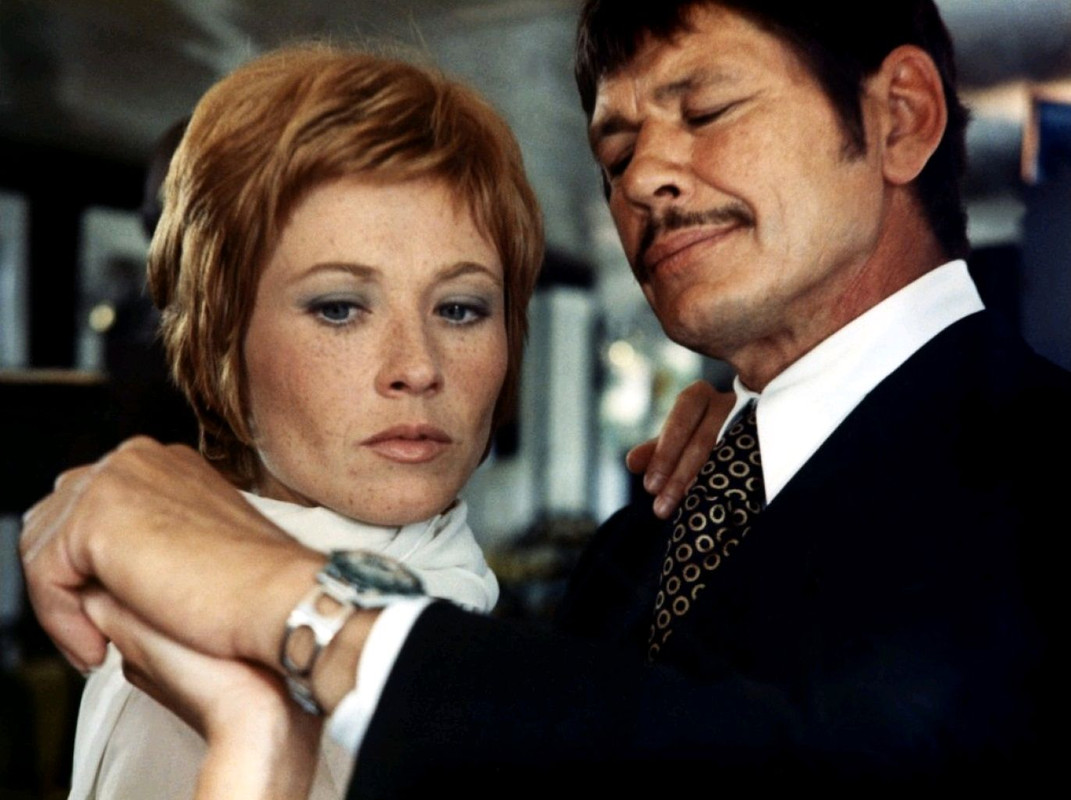
Mélancolie 'Mellie' Mau (Marlène Jobert) and Col. Harry Dobbs (Charles Bronson), dancing. DP: Andréas Winding.
“There are no ghosts in daylight. You'll get used to our nights at Diodati. A little indulgence to heighten our existence on this miserable Earth. Nights of the mind, the imagination. Nothing more.”Gothic (Ken Russel, 1986)
Oct
1
Frankenstein
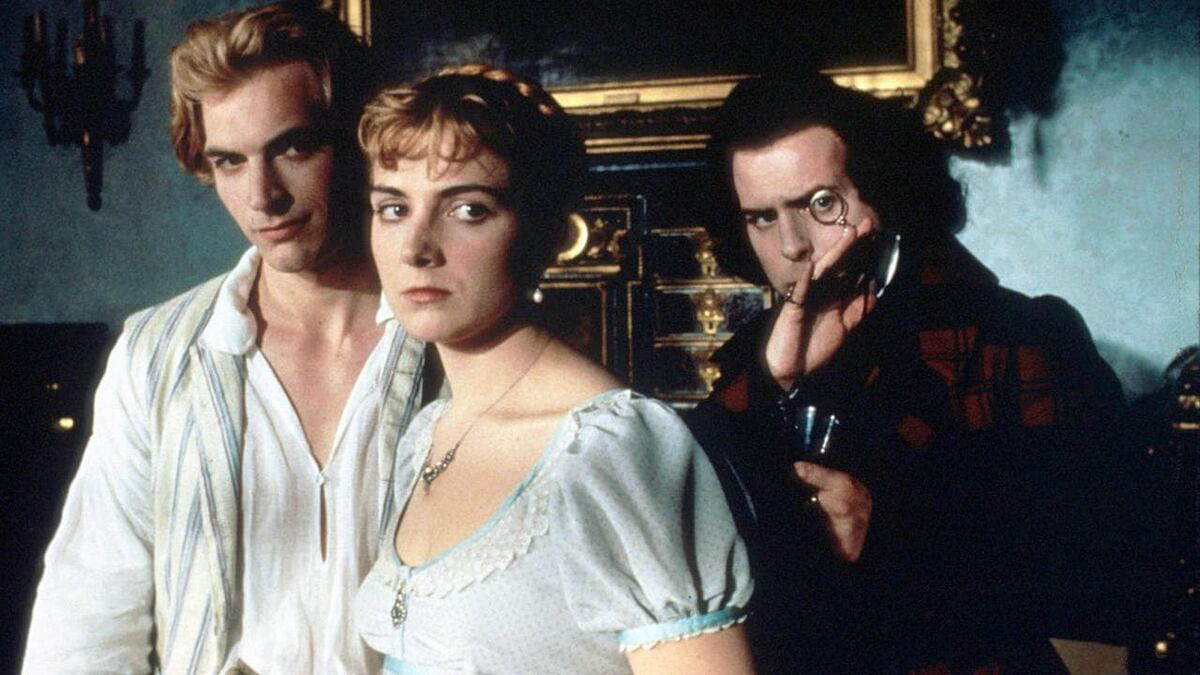
Percy Shelley (Gabriel Byrne), Mary Shelley (Natasha Richardson) and Dr Polidori (a deliriously delicious Timothy Spall). DP: Mike Southon.
A [favourite] Frankenstein film.
One wet, ungenial summer in 1816, lovers Mary Godwin and Percy Shelley, and Mary's stepsister Claire Clairmont, visited a dear friend at Villa Diodati. That friend was Lord Byron, exiled and residing in the Swiss villa with his physician Dr John Polidori
– Lord Byron
Forced indoors, over the cause of three days they turned to the occult, to laudanum, to stories from the Fantasmagoriana, and the horrors of their own. That summer, Frankenstein saw the light of day.
“This mirror reflected a painting… with words. Chinese idiograms. 'The she-crane calls in the shadow. Her cheek answers.'” Le orme [Footprints on the Moon] (Luigi Bazzoni + Mario Fanelli, 1975)
Sep
30
International Translation Day
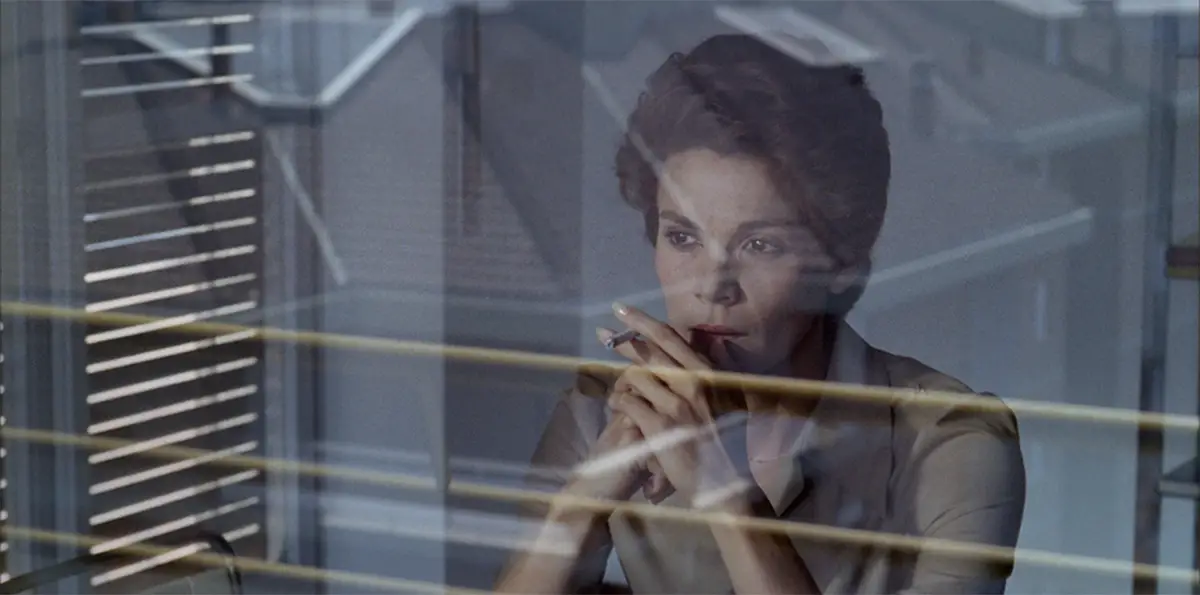
Alice reflected/reflecting in a glass pane (via). DP: Vittorio Storaro.
A translator for International Translation Day
– Alice Campos
Alice, the always fantastically brooding Florinda Bolkan, works as a translator when all of sudden she loses her job and finds herself on the small island of Garma. People tell her she has been there before, recently, but she knows this is not possible.
Some English-language posters try to sell Le orme as an action-ridden sci-fi giallo, but oh boy leave that perception behind and you're in for one unsettling treat! Le orme can be placed somewhere between Don't Look Now and that other Alice film, Chabrol's Alice ou la dernière fugue. Drifting and elegant, distant and claustrophobic.
“Tot dusver had ik mij steeds vrij tevreden met het leven gevoeld, zonder er wonderen van te verwachten. Die morgen geloofde ik, dat het voor een mens niet onmogelijk is gelukkig te zijn, kortstondig gelukkig misschien, maar gelukkig onmiskenbaar.”De komst van Joachim Stiller [The Arrival of Joachim Stiller] (Harry Kümel, 1976)
Sep
11
1919

The mysterious letter postmarked September 11, 1919 that one day landed on Freek Groenevelt's (Hugo Metsers) doormat. DP: Eduard van der Enden.
– Hubert Lampo, De komst van Joachim Stiller (1960)
Maléfices [Sorcery / Where the Truth Lies] (Henri Decoin, 1962)
Sep
10
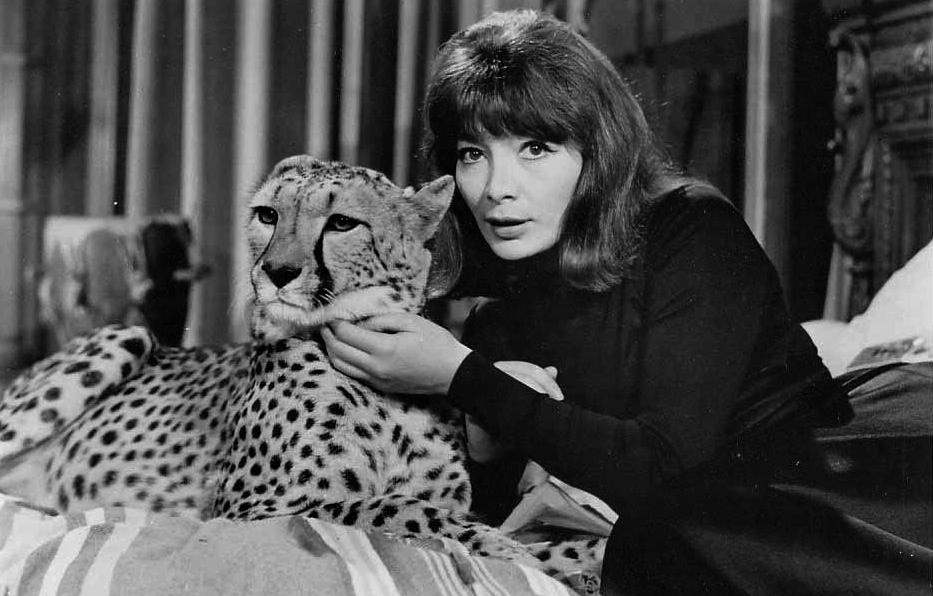
Myriam Heller (Juliette Gréco) sharing a bed with Nyète, her cheetah. DP: Marcel Grignon.
Die Delegation – Eine utopische Reportage [The Delegation] (Rainer Erler, 1970)
Sep
9
0 h 20 GMT
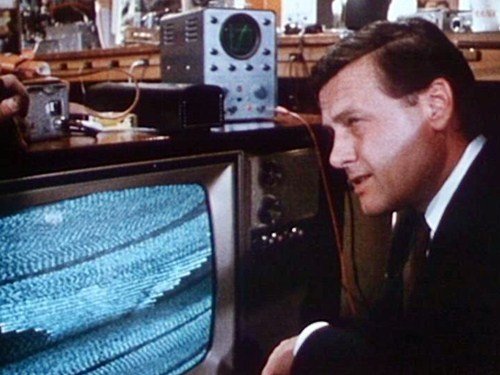
Reporter Will Roczinski (Walter Kohut) picks up mysterieus signals through the ether (via). DP: Charly Steinberger.
We watch the final report by Will Roczinski, who sadly died in a car crash while working on a TV documentary about UFOs and the like. A fascinating early “faux footage” film from the BRD. One can only wonder how the average West German processed the fantastic premise.
“We've been to Haunted Hills, and through Tinglers, and even Ghosts... but now we're going to meet a group of people who just happen to be… Homicidal.”Homicidal (William Castle, 1961)
Sep
6

Man's hands hold a picture of Emily (Joan Marshall). DP: Burnett Guffey.
– William Castle, introduction